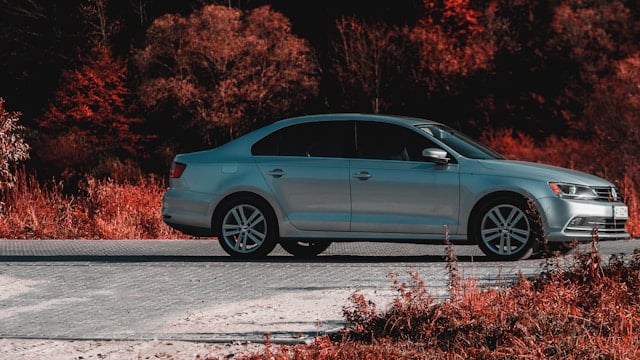How to Convert the FWD Layout of a Honda Accord to AWD for Better Traction?

In an era of ever-advancing technology, driving dynamics have significantly evolved. Vehicles no longer adhere to the traditional rear-wheel-drive, offering a multitude of options that enhance performance and stability. Among these options, the All-Wheel Drive (AWD) reigns supreme, especially when it comes to delivering robust power and improved traction. This guide will walk you through the process of converting the Front-Wheel Drive (FWD) layout of your Honda Accord to an AWD system for enhanced traction. We’ll delve into the intricacies of wheels, engines, tires, and vehicle systems that contribute to a successful conversion.
Understanding the Difference Between FWD and AWD
Before you consider any conversion, it is crucial to comprehend the core differences between FWD and AWD. In a FWD setup, the engine power is directed to the front wheels. This layout is common in many vehicles due to its cost-effectiveness and fuel efficiency. However, an AWD system sends power to all four wheels of the car simultaneously. It provides better traction, particularly on slippery or uneven terrains, enhancing overall vehicle performance.
Sujet a lire : What’s the Best Way to Program a Key Fob for a 2010 Volkswagen Jetta?
Why Convert Your Honda Accord from FWD to AWD?
Although FWD vehicles, including the Honda Accord, are well-regarded for their fuel efficiency and drivability, the AWD offers superior traction, especially in challenging driving conditions. An AWD system ensures the power is evenly distributed among all four wheels, reducing the likelihood of wheel spin and maintaining the car’s stability. For those who frequently drive on slippery or uneven roads, converting the FWD layout of your Honda Accord to an AWD system can be a wise decision.
Preparing for the Conversion: Gathering the Necessary Parts
To convert your Honda Accord from a FWD to an AWD system, you’ll need an assortment of parts, including a new engine, transmission, rear differential, drive shafts, and additional wiring harnesses. It’s essential to ensure these parts are compatible with your specific vehicle model and year. The power and torque produced by the engine should be adequately handled by the new AWD system. Additionally, the tires should be suited for AWD operation, ensuring they can cope with the increased power and torque.
A lire également : What’s the Best Method for Painting Brake Calipers on a 2020 Audi RS3?
Steps for Converting the Honda Accord from FWD to AWD
The conversion process is quite intricate and should be undertaken by a professional mechanic or someone with extensive automotive knowledge. Here’s a simplified overview of the steps involved:
-
Engine and Transmission Replacement: The first step is to replace the original FWD engine and transmission with those suitable for an AWD system. This is a critical step, as the engine and transmission are responsible for delivering power to the wheels.
-
Rear Differential Installation: The next step involves installing a rear differential. This component enables the power to be evenly distributed to the rear wheels.
-
Drive Shaft Installation: The drive shafts connect the transmission to the front and rear differentials. They are responsible for transmitting power from the engine to the wheels.
-
Wiring Harness Installation: Lastly, additional wiring harnesses need to be installed. These will connect the various parts of the AWD system, enabling them to function seamlessly together.
The Role of a Hybrid System in AWD Conversions
While converting a Honda Accord from FWD to an AWD can be a daunting task, the introduction of hybrid systems has made the process somewhat easier. Hybrid systems combine an internal combustion engine with an electric motor. In some vehicles, the engine powers the front wheels, while the electric motor powers the rear wheels, effectively creating an AWD system. Converting a Honda Accord to a hybrid could, therefore, be a more cost-effective and straightforward solution to achieving AWD traction.
However, it’s important to note that while this solution provides AWD capabilities, it might not deliver the same level of performance as a traditional AWD system. This is because the power delivery from the electric motor is typically less aggressive than that from a standard engine, leading to a different driving feel.
In conclusion, converting your Honda Accord from a FWD to an AWD system is a complex task that requires careful planning, a clear understanding of vehicle mechanics, and the right components. Whether you choose a traditional conversion or opt for a hybrid system, remember that the aim is to improve your driving experience by enhancing your vehicle’s traction and overall performance. Always seek professional advice before undertaking such a project to ensure your safety and the longevity of your vehicle.
The Challenges and Costs of Converting FWD to AWD
In the quest of getting better traction and performance, you must also be aware of the possible challenges and costs that come with converting your Honda Accord from FWD to AWD. This is not a straightforward process and involves a lot of technical aspects that require professional knowledge and expertise.
The first and most significant challenge is the installation process. It’s a labor-intensive task that involves replacing the engine and transmission, installing the rear differential, drive shafts, and wiring harnesses. Each of these components plays a crucial role in the AWD system and needs to be installed correctly for the system to function seamlessly. Incorrect installation could lead to significant damage to your vehicle and compromise your safety.
The second challenge is finding compatible parts for your specific Honda Accord model and year. It is essential to ensure the engine, transmission, and other components are suitable for your vehicle. This requires extensive research and could also involve significant costs.
The cost of converting from FWD to AWD is another important factor to consider. This includes the costs of buying the necessary parts, professional installation charges, and potential modification costs. Depending upon the complexity of the conversion and the cost of parts, you could be looking at an investment of several thousand dollars.
Lastly, an AWD system typically has a lower fuel economy than a FWD system. While the AWD system provides better traction, particularly in challenging driving conditions, it also consumes more fuel. Therefore, you need to weigh the benefits of improved traction and performance against the potential increase in fuel costs.
Alternatives to AWD Conversion
Given the challenges and costs associated with converting your Honda Accord from FWD to AWD, it’s worth considering some alternatives that can improve traction and performance without the need for such a significant modification.
One such alternative is to invest in high-quality tires designed for better traction. This could be a simpler and more cost-effective solution, particularly for those who mainly drive in urban environments where the benefits of an AWD system might not be as noticeable.
Another alternative is to improve your driving skills. Learning how to manage your vehicle in different driving conditions can be just as effective as having an AWD system. There are many advanced driving courses available that can teach you how to handle a car effectively on slippery or uneven roads.
Lastly, before undertaking a significant project like converting your Honda Accord from FWD to AWD, it’s worth considering whether a different vehicle might be a better fit for your needs. If you frequently find yourself driving in conditions that require better traction and power, it might be more practical to consider buying an AWD car rather than converting your existing one.
In Conclusion
Converting your Honda Accord from a FWD to an AWD system can provide better traction and overall performance, especially under challenging driving conditions. However, this is a complex and costly process that requires professional expertise and careful planning. It’s vital to understand the implications of such a modification, including the potential impact on fuel economy and the necessity of having the right parts for your specific vehicle model.
Alternatives to an AWD conversion, such as investing in better tires or improving your driving skills, could also enhance your Honda Accord’s performance in different driving conditions. Always remember to seek professional advice before undertaking such a significant project to ensure the longevity of your vehicle and your safety on the road.
